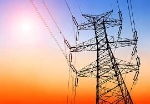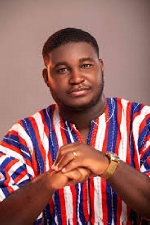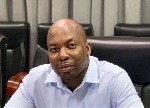Who is Vladimir Putin counting on to conquer Africa?
 Russian President Vladimir Putin and several African leaders attend the Navy Day parade in St. Petersburg in July 2023
Russian President Vladimir Putin and several African leaders attend the Navy Day parade in St. Petersburg in July 2023
Reelected Russian president after a 15-17 March rubber-stamp election with no real opponents, Vladimir Putin remains Moscow’s puppet master. The march of his ambitions in Africa has not missed a step, thanks to a full staff devoted to his imperialist aims.
With a whopping 88% of the vote, President Vladimir Putin’s endorsement in Russia’s 15-17 March elections has made an impression with the West African junta leaders who are in no hurry to organise elections: Mali’s Assimi Goïta, Burkina Faso’s Ibrahim Traoré and Niger’s Abdourahamane Tiani all called to congratulate Putin on his reelection.
In a few short years, the Kremlin’s puppet master has succeeded in repositioning his country at the heart of the political scene in Africa. A sponsor of the regimes in place in Bamako, Ouagadougou and Bangui, and in the process of forging closer ties with the coup plotters in Niamey, Moscow has pushed France to the brink, and even towards the exit of certain countries in what was once its exclusive territory.
From sovereignist and anti-Western propaganda and diplomacy to multi-faceted support for civil society and opposition movements and full access to the Wagner group and its network, Russia has succeeded in deploying a sprawling strategy on the continent. This has not been undermined by its war in Ukraine, which today symbolises Russia’s struggle against ‘the West’.
Who are the men (for they are all men) Putin has put in charge of implementing the Kremlin’s Africa plans? From United Russia, the president’s party, to military intelligence, ministries and state enterprises, we introduce you to Putin’s ‘African’ executors.
Dmitry Medvedev has long been underestimated. Serving as president from 2008 to 2012 in order to allow Putin to remain in power (as prime minister) within the constitutional limit, Medvedev has remained one of the Kremlin’s most loyal supporters. A native of St Petersburg, the seat of Putin’s power, he is deputy chairman of the Russian Security Council and president of United Russia.
As the head of Putin’s political party, he applies the Kremlin’s international strategy, notably by fostering relations with foreign political parties, particularly in Africa. From 15 to 17 February in Moscow, he organised a “forum of supporters in the fight against contemporary practices of neo-colonialism”.
At the forum, Medvedev called for “the liberation of sovereign states from the legacy of colonial domination”. Since the start of the war in Ukraine, the former president has also regularly been singled out for his diatribes against Western leaders, most notably French President Emmanuel Macron, who he recently described as a “zoological coward”.
While Putin seems to have become increasingly isolated since the start of the war in Ukraine in 2022, one man always has the Russian president’s ear: Nicolai Patrushev. Secretary of the Russian Security Council, he has always been one of Putin’s most loyal allies and advisers, to the point where some see him as a potential successor to the president.
Also born in St Petersburg, he cut his teeth in the Soviet KGB – like Putin – and headed the Federal Security Service (FSB, Russian domestic intelligence) from 1999 to 2008. He also worked alongside Putin in the Kremlin, in the administration of President Boris Yeltsin in the late 1990s.
A supporter of an aggressive international policy, this Kremlin hawk has already put his talents and networks as an ex-spy to good use in African affairs, visiting Morocco and Libya in recent years. He is one of the most fervent defenders of Russia’s “war of defence” against the West.
Although Putin’s power has become even more concentrated around the military and spies since the start of the war in Ukraine, Foreign Minister Sergei Lavrov is still the lynchpin of Russian strategy, particularly in Africa. The diplomat visited South Africa and Mali in 2023.
Born in Moscow in 1950, he trained at the prestigious State Institute of International Relations and has held the post of head of Russian diplomacy since 2004. He has made a major contribution to putting his country back on the world political stage, and is a frequent host to African dignitaries in Moscow’s Smolensk Square, in a ministry that is his fiefdom.
Once again this year, he will be one of the architects of the Africa-Russia summit, due to take place in Equatorial Guinea in July or August. He was due to travel to Malabo in March, but his visit has been postponed. He is assisted by his deputy minister for Africa and the Middle East, Mikhail Bogdanov.
Criticised, attacked and threatened, defence minister Sergei Shoigu has – for now at least – managed to retain his post and the undoubtedly partial trust of Putin. Despite the stalemate in the Russian offensive in Ukraine, this founding member of United Russia is still pulling the strings of his country’s military diplomacy, notably in Africa, with a focus on the Sahel and Libya.
Through events such as the Conference on International Security and the Army-2023 forum, his ministry is weaving its web all the way to the continent, increasing the number of meetings with leaders and top brass. The aim is to strengthen military agreements between African countries and Moscow, in particular, by increasing the supply of equipment to friendly armies.
He is assisted by deputy ministers Alexander Fomine and Yunus-bek Yevkurov. In this post since 2019, the latter has focused on Africa since the 2023 death of Yevgeny Prigozhin, financier of the Wagner group. Welcomed with open arms in Bangui, Bamako, Ouagadougou and Niamey, he is the face of Russian military strategy on the continent, of which mercenaries are an official part.
Putin, who came through the KGB and was trained in the Soviet Union, has made intelligence and espionage professionals the bedrock of his power. One of its pillars is the military intelligence service known as the Main Directorate of the General Staff of the Armed Forces of the Russian Federation, or GU (formerly GRU), headed by Igor Kostyukov.
Appointed acting director in 2018 and then confirmed in his post, this high-ranking officer of fearsome efficiency and practised discretion is at the head of a huge network of spies deployed in Russia and abroad, trained to gather intelligence or eliminate “threats” identified by their superiors, such as the exiled former officer Sergei Skripal.
Admiral Kostyukov, who trained at Moscow’s military diplomatic academy, is one of the secret strategists responsible for the Wagner group’s deployment abroad. The GU is estimated to have more than 10,000 members. Since the rebellion and subsequent death of Prigozhin in 2023, Kostyukov’s department has taken complete control of the group.
Another spy, this time a civilian, plays a key role in Vladimir Putin’s entourage: Sergei Narychkin. A native of St Petersburg, he has been head of the Russian Federation’s Foreign Intelligence Service since 2016. He is said to have known Putin since the late 1970s, when he was a member of the KGB, and built his political career within the United Russia party.
One of the men in charge of organising the takeover of the Wagner Group by Russian military intelligence is Vladimir Alekseev, number two in the former GRU and a former special forces operative who worked alongside Dmitri Utkin, the group’s former military chief.
Alongside Yunus-bek Yevkurov, he negotiated with Prigozhin after the latter rebelled and started moving his men towards Moscow in 2023. Alekseev was also behind the creation of another private military company, Redut, headed by Konstantin Mirzayants. Splitting his time between Bangui, Bamako and Ouagadougou since last August, Alekseev has been renewing agreements between Russian mercenaries and local authorities.
He was accompanied by former GRU general Andrei Averyanov, who had already been seen at meetings with African delegations in July 2023 as part of the Russia-Africa summit in St Petersburg. Averyanov also headed unit 29 155, which is responsible for the Russian intelligence services’ dirty work. He is one of the supervisors of the Afrikanski korpus, into which Wagner was merged.
The two men have at their disposal a group of lieutenants, including Dmitri Sytyi, Anton Elizarov, Pavel Prigozhin (Yevgeny’s son) and Denis Pavlov. Viktor Lukovenko, sometimes called Viktor Vasilev, and Artem Sergeyevitch Kureyev are in charge of propaganda operations for the new Wagner in Africa, as heads of the African Initiative network.
Last but not least, Russia’s international strategy is complemented by a network of major companies, particularly in Africa, in the arms, hydrocarbons and atomic energy sectors. They are headed by a group of oligarchs who are trying to keep Russia in the global economic game, juggling international sanctions and Western competition.
Sergei Chemezov, head of the industrial giant Rostec (which specialises in military equipment but is also active in civilian sectors such as health and biotechnology), is undoubtedly one of the most influential and sought-after. One of the conglomerate’s stated objectives is to make a strong comeback on the African continent.
Rostec relies in particular on its armament branch, Rosoboronexport. Headed by Alexander Mikheyev, Rosoboronexport supplies many African countries, with which it signed more than $4.5bn worth of contracts in 2023, according to figures recently released by the company itself.
Russia’s international muscle is also reinforced by Rosneft, which specialises in the extraction, processing and distribution of oil and is headed by former deputy prime minister Igor Setchin, as well as Alexey Miller‘s Gazprom and Nikolay Tokarev‘s Transneft. These companies are active in Southern and West Africa, particularly in Mozambique and Nigeria.
Source: Theafricareport.com
Trending Features

Implementing the ESG framework in Ghana's energy sector for sustainability
09:44
The Detrimental Effects of Political Interference on Ghana's Electricity Sustainability
09:36
Response to your decision to not to hand over power to the next NDC gov’t
09:28
Election 2024: Adenta Kumi now the saviour of the sinking NPP?
08:54
Privatisation of ECG no solution: A case for sustainable public ownership
13:34



